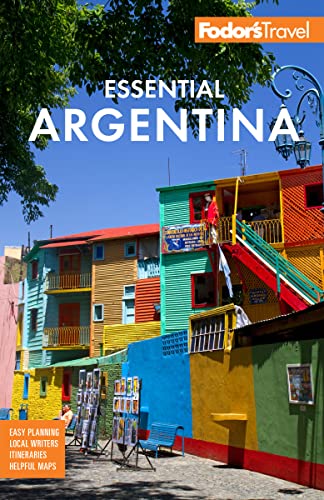Argentina Today
The only thing certain in life is change, and no one knows it like Argentineans. Recession and growth, busts and booms, they’ve seen it all. Though their country’s economic star rises, falls, and occasionally sputters out with alarming regularity, the things that really matter in Argentina don’t seem to change. The beef and wine-laden table of a family asado; a penalty kick at a fútbol match; the rhythms of tango, cumbia, and chacarera—these are what make locals’ hearts beat faster. They might just win yours over, too.
Political Divisions
Since the country hit rock-bottom in 2001–02, Argentines have taken increasingly vehement positions on the actions of the three Kirchner administrations (one led by Néstor Kirchner and two by his wife Cristina Fernández). Critics accuse them of corruption, populism, and cutting Argentina off from the global market. But the renationalization of the country’s pension scheme, airline, and petrol giant YPF have earned them many supporters. So has their social spending, including a new universal childcare allowance and low-interest credit for first-time homeowners.
For many, soaring inflation and a plummeting peso are causes for concern, as are clamp-downs on foreign currency purchases to prevent capital flight. Argentines feel strongly about this, and they show it, often by taking to the streets. City avenues and highways are regularly blocked by drum- and banner-toting crowds, and large-scale strikes are becoming common. Sometimes demonstrators are protesting a law; at others they’re celebrating political or sporting victories, or marking an event.
Going Global
Locals can't get over the number of out-of-towners flooding the country. And more and more of the 2.6 million annual foreign visitors are staying on. Tango enthusiasts are snapping up old apartments in Buenos Aires, wine aficionados are investing in vineyards, outdoors enthusiasts are buying chunks of Patagonia. The number of exchange students at universities in Buenos Aires has soared, and there's a thriving expat scene complete with how-to blogs and magazines.
Comparatively low property prices and a favorable exchange rate mean that some of these European and North American newcomers can afford not to work: would-be novelists, painters, musicians—and former investment bankers—abound. Popular tourist sites are getting the spit-and-polish treatment, and tourist-friendly attitudes are being promoted.
Grappling with the Past
The military juntas behind Argentina's 1976–83 dictatorship called their reign the National Reorganization Process, a grim euphemism for six years of state-run terror during which 30,000 people "disappeared" and countless more were brutally tortured. Justice has been slow in coming: although some military officials were brought to trial in the 1980s, President Carlos Menem later pardoned them all. But after years of tireless campaigning by victims and human rights groups such as the Madres de Plaza de Mayo (Mothers of Plaza de Mayo), the Kirchner administration has revoked these pardons, and military officers responsible for torture and disappearances are being sentenced for crimes against humanity. Former clandestine detention centers have been transformed into cultural centers, and the anniversary of the start of the dictatorship, March 24, has been made a public day of remembrance.
Abuelas de Plaza de Mayo (Grandmothers of Plaza de Mayo) continues to search for missing grandchildren, stolen at birth from kidnapped mothers and often raised by the very people who killed the children's parents. The creation of a genetic information bank has meant that 113 such cases have been solved, leading to many children—now in their thirties—being "found."
Foodie Culture
Foodie culture has hit Argentina in a big way. Celebrity chefs are enthralling TV audiences, and former table-wine drinkers now debate varietals and name-drop boutique vineyards. Their beer-drinking peers are turning from the ubiquitous bottles of Quilmes lager to local craft beers. A growing number of food blogs and food tours alert locals and visitors to the dishes of the day, often found behind the unmarked doors of clandestine restaurants. The food scene is rife with contradiction, however. Argentina is one of the world’s largest producers of organic fruits and vegetables, but nearly all of it gets exported. A small slow-food and farm-to-table movement is fighting back at farmers’ markets in big cities. Saddest of all, the growth of GM soy farming is pushing Argentina’s famed grass-fed cattle from the Pampas and into feedlots—these days only very high-end restaurants can guarantee you a grass-fed and -finished steak.




